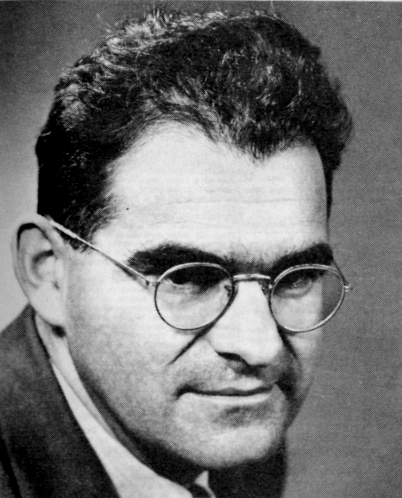Victor “Viki” Weisskopf (1908-2002) was an Austrian-American physicist who served as Director General of the European Organization for Nuclear Research (CERN).
Early Life
Weisskopf was born to a prominent Jewish family in Vienna, and quickly became regarded as one of the most promising young physicists in Europe. He received a Ph.D. from the University of Gottingen at just 23 years old, and spent the fall after his graduation studying with Werner Heisenberg, the Nobel Prize winner who would go on to lead the German atomic bomb program. He seemed poised to become the next of many Nobel laureates produced by that institution.
Unfortunately for Weisskopf, the rise of the Nazi Party in Germany interrupted his rise to the top of European physics. Weisskopf began to focus his study on nuclear physics, because it presented the most opportunities in the United States. Eventually, he took a professorship at the University of Rochester.
Manhattan Project Involvement
Weisskopf had a long standing interest in global affairs. Before the war he had met with J. Robert Oppenheimer to share his perspective on Soviet tyranny. This meeting was central to Oppenheimer’s eventual decision to pull away from Communist-backed activities.
In 1943, Oppenheimer recruited Weisskopf to join the Manhattan Project at Los Alamos. Weisskopf served as the Deputy Division Leader of the Theoretical Division, working under Hans Bethe. Much of his research at Los Alamos dealt with the potential effects of the bomb.
Weisskopf’s role at Los Alamos brought him to the Trinity site as well. He arrived there several weeks before the test was conducted in order to prepare and assemble measurement equipment. He remained at the Alamogordo, NM site through the duration of the test. Just 36 hours after the bomb was detonated, he, along with Bethe and Enrico Fermi, became the first non-military personnel to survey the site.
In addition to his scientific achievements, Weisskopf was also a civic leader at Los Alamos. He served multiple terms on the Los Alamos town council, including one term as the council chairman, making him the town’s de facto mayor. At the same time, he was an advocate for the project’s lower level workers, negotiating with military officials in order to win them better pay and accommodations.
Ever opposed to the Nazi regime, Weisskopf even devised a plan to kidnap his former colleague Werner Heisenberg from a Swiss lecture series he was attending in order to stymie the German atomic bomb program. He shared this plan with Oppenheimer, who felt lukewarm about it at best. General Leslie Groves was more forceful in vetoing it.
Later Years
After the war, Weisskopf began a professorship at MIT. He also became an advocate for nuclear disarmament, and contributed to the 1957 Pugwash conference. He remained close with Oppenheimer, and was one of the many physicists to speak out on his behalf during the proceedings to strip him of his security clearance.
Weisskopf’s most prestigious postwar appointment was as CERN Director General. He held that position from 1961 to 1965 before returning to MIT, where he spent the rest of his life. One of the brightest minds to work on the Manhattan Project, he won several academic awards throughout his lifetime.





